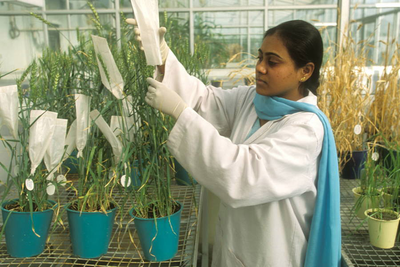Each year, 10 to 12 million sub-Saharan African youth enter the labour market. They face fierce competition for jobs, in part because Africa has the largest population of young residents in the world. Competition is heightened because employers demand skills critical to the 21st century workplace that are too often lacking among new entrants to the labour market.
This skills mismatch is a major problem. Young people who are unable to find work in their first year after school earn 21 percent less over the course of their lifetime than peers who get jobs in that first year.
The first year of workplace exposure is crucial in charting career success. Extended periods of unemployment – especially at the beginning of one’s working life – carry a serious long term penalty.
Why the divide?
A big part of the problem is that young people in sub-Saharan Africa do not typically develop the soft skills such as customer service, problem solving, detail orientation and work planning that employers test during interviews. This is in part because schools are focused on teaching technical skills, and often rely on rote learning.
Students do not learn these skills at home either, often because parents did not need these skills for jobs in the previous century. At the same time, part-time jobs and internships – environments in which young students can develop soft skills over time – are rare in these countries.
Employers are placing an increasing emphasis on these skills. Sectors such as retail and hospitality are among the fastest growing sectors on the continent, and they are highly reliant on skills such as customer service. Manufacturing meanwhile is becoming increasingly mechanized, requiring employees to perform higher order problem solving tasks rather than operating machinery.
Given these changes, it is no surprise that employers often complain about the lack of work readiness among candidates.
Closing the gap
There are a few training programs in Africa that are seeking to close this gap in soft skills. The International Youth Foundation has developed a global curriculum for soft skills, and is making it available in a number of countries around the world.
Organisations such as Harambee in South Africa and Education for Employment (EFE) in North Africa are also developing and delivering soft skills training to unemployed youth. Others, including ALU in Mauritius and Spire in East Africa are going a step further by developing tertiary education systems that are closely linked to job market needs. Unfortunately, not enough of these programs exist.
One rapidly scalable solution to this problem is developing of an ecosystem of internships or apprenticeships across Africa. Apprenticeships are a time tested concept. In most societies around the world, apprenticeships are the means by which youth learned specific skills and prepare to earn their livelihoods.
Youth gain technical expertise by supporting and emulating experienced practitioners, who also serve as a mentor, teaching them how their particular trade fit into society. Traditionally, these mentors were often one of the young person’s relatives. In modern economies, apprenticeships can continue to play an important role across industries and sectors by providing on-the-job learning to recent graduates.
The potential for gains is significant. For disadvantaged youth, time bound apprenticeships can provide much needed exposure and real experience in the workplace. For those who excel, an apprenticeship can translate into a long term job offer, or serve as a reference for other prospective employers.
If young people are able to find and keep jobs for one year, they are 85 percent more likely to avoid unemployment. Even when youth do not excel in a particular role, the experience can provide valuable soft skills as well as clarity on their individual strengths and weaknesses. These can help them find more suitable employment.
For employers, the time bound nature of apprenticeships enables them to test larger numbers of prospective hires before focusing on those most likely to succeed. The additional investment in such programs can be partially offset by the savings from reduced staff turnover, as a result of hiring well-suited youth into full time positions.
Where employers are hesitant to invest in these programs because of the possibility of turnover, governments should step in and subsidize these programs through stipends to apprentices and tax credits to employers.
While these programs exist worldwide, a few economies have succeeded in making them an engine for growth. Germany in particular is renowned for its apprenticeship programs, which result in 60 percent of apprentices receiving a permanent position. Overall youth unemployment peaked at just 8 percent during the financial crisis.
Despite their differences, successes in Germany present compelling lessons for African economies struggling to keep their youth in work. It could be valuable to pilot similar models in Africa to test their effectiveness.
Taking pilots to scale
Once successful models are developed and proven, they can be scaled up through collaboration between employers, governments and donors. National youth programs already exist in several African countries including Kenya, Nigeria and Ghana. Ghana alone has 200,000 youth in the program in any given year.
These programs can partner with private sector employers, especially small and medium enterprises. These businesses are numerous enough to absorb a large number of youth, and are typically more risk averse when it comes to hiring untested employees. Government supported youth placement programs can provide a big boost to small and medium-sized enterprises, which would further the overall economic development agenda.
Youth unemployment is not a simple problem to solve. It is driven by many complex factors, and it will require a combination of context-specific solutions. Apprenticeships offer one such solution that is promising because of its potential to deliver a lot of training at a relatively low cost.
Investing in these programmes could be a key to preparing a rapidly growing youth population for the 21st century workplace.
By Devang Vussonji, James Mwangi http://ww w.thisisafricaonline.com/


